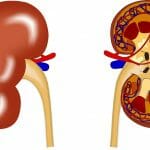We all need sleep. Without it, we can’t function. Not at our best, or even at all if the sleeplessness persists for too long. During sleep, our bodies and brain alike go into a recharge mode and prepare us for the next set of challenges we will face. When fatigue builds up past mere tiredness into actual sleep deprivation, a number of measurable changes occur in our bodies and brains. These include reduce rates of muscle cell regeneration, as well as lower memory retention.
Negative effects can occur with even minor sleep deprivation, altering our judgement and mood, and manifesting in changes in blood pressure. Weight gain is a common side effect from persistent sleep deprivation. And when we’re fatigued, we’re more likely to be stressed. Which carries its own set of damaging physical and mental symptoms. Including insomnia and general sleeping problems; which turns it into a feedback loop that can be tough to break out of even as the negative results continue to build up.
Most adults in America do not get enough sleep. More than half of those who fall into this category have changes in mood and concentration, as well as reduced motivation to attend to necessary tasks. Simply getting more sleep will fix these problems.
When you’re stressed, it’s hard to sleep. Sleeplessness causes stress. Break the cycle. #HealthStatus
Key Points:
- 1Sleep is a necessary human function because it allows our brains to recharge and our bodies to rest.
- 2Chronic sleep deprivation can lead to major health problems like obesity and high blood pressure.
- 3Stress interferes with a person’s sleep making it hard to get the healthy amount of rest.
See the original at: https://www.apa.org/news/press/releases/stress/2013/sleep.aspx








Reply